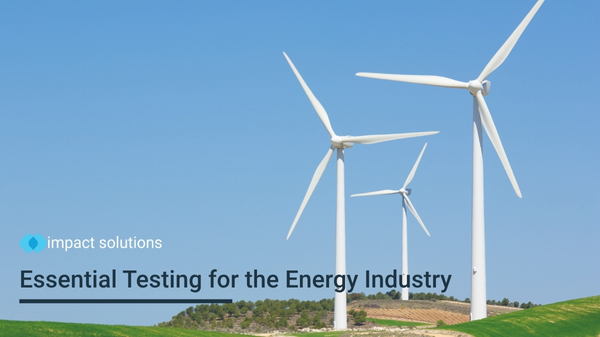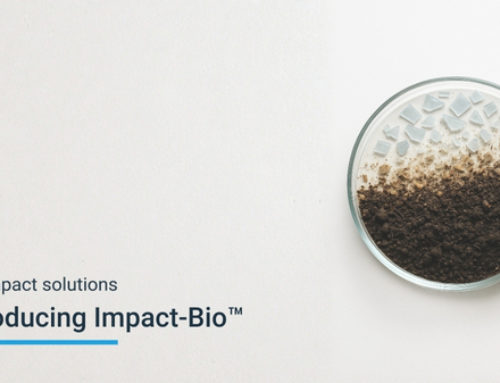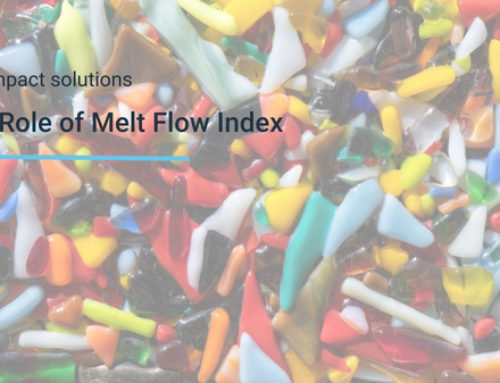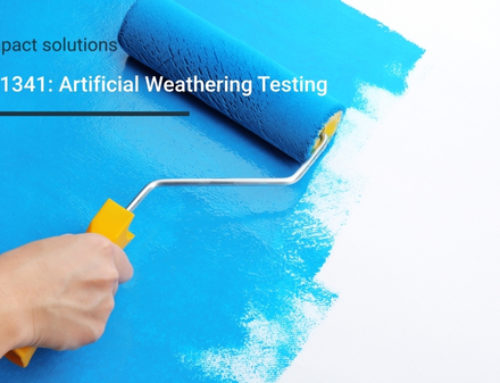In the energy sector, materials face tough conditions; extreme temperatures, high loads, abrasion, impact, and long-term UV exposure. Ensuring key components hold up over time requires more than just basic quality checks.
Targeted testing like tensile strength, FTIR analysis, abrasion resistance, impact resistance, and UV aging gives engineers the data they need to select and validate the right materials. These tests are essential for oil & gas, renewables, and energy infrastructure, where performance failures can be costly and dangerous.
Below are five key tests that support reliable materials selection and failure prevention for commonly used materials within the energy sector.
Tensile Strength Testing (ASTM D638, ISO 527)
Tensile testing measures the mechanical properties of polymers and other materials under tension. In the energy sector, tensile testing materials like gaskets, seals, composites, and polymer liners ensures they can withstand high pressure, mechanical loading, and extreme environments.
Used for: Pipe seals, O-rings, offshore components, cable jackets, turbine composites
Critical for evaluating material durability after thermal or chemical exposure.
FTIR Analysis for Material Verification (ISO 10640)
FTIR testing is a key technique for polymer identification in components used in oil & gas applications, detecting contamination, or degradation in materials. Accurate FTIR testing of materials supports failure analysis and quality assurance of components.
Used for: Failure analysis, raw material verification, aging studies
Prevents costly field failures by ensuring material consistency and health.
Abrasion Resistance Testing (ASTM D4060)
Abrasion resistance testing evaluates how well materials withstand wear from mechanical action. For the energy sector, abrasion resistance of elastomers and coatings is crucial to protect seals, cables, and surfaces subject to friction and erosion.
Used for: Protective coatings, cable jacketing, sealing elements
This test helps prevent premature failure due to surface degradation.
Impact Resistance Testing (ISO 179)
Impact resistance testing of materials measures how well components absorb and resist sudden mechanical shocks or impacts. This test is vital for pipeline components, equipment housings, and composites exposed to potential impact during operation or transport.
Used for: Pipeline parts, electrical enclosures, composite panels
Ensures material toughness and durability under real-world impact conditions.
UV Aging and Weathering Testing (ISO 4892)
UV aging and weathering testing simulates prolonged exposure to sunlight, moisture, and temperature fluctuations. In the energy industry, UV aging of polymers is critical for outdoor components like solar panel encapsulants, wind turbine blades, pipes and hoses, and sealing materials. Can be used in conjunction with other test methods to assess effect on performance.
Used for: Solar panels, wind turbines, outdoor seals and coatings, conduits
Helps predict long-term durability and performance in different climates and harsh environments.
Comprehensive materials testing in the energy sector is essential. From tensile testing of elastomers to spectroscopic analysis, abrasion resistance, impact resistance, and UV aging, these tests reduce risk and ensure that components perform where it counts.
FAQ
Why is abrasion resistance testing important for energy applications?
In oil, gas, and renewables, components like cables, seals, and coatings face continuous wear. Abrasion resistance testing helps ensure these materials don’t degrade prematurely due to friction or contact with other surfaces.
How does FTIR analysis support failure prevention?
FTIR testing identifies chemical changes in materials—such as degradation, contamination, or incorrect formulation—which can help determine root causes of field failures or verify incoming materials meet specifications.
What is the benefit of UV aging tests for outdoor energy systems?
UV aging tests simulate years of sunlight exposure in days or weeks. This is crucial for validating materials used in solar panels, wind turbines, or outdoor enclosures, ensuring they won’t crack, fade, or lose mechanical strength over time.
Why choose Impact Solutions?
Our laboratory is well-equipped to provide all of the above services for your product. All of our testing programmes include full reports; covering the method of testing, a full analysis of results, and further recommendations. All testing is performed by our expert staff. Our UKAS accreditation and 100% independence mean that we can deliver results that you know can be trusted.
Get in touch with our specialists today: https://www.impact-solutions.co.uk/contact-us/
Give us a call: +44 (0)1324 489182
Don’t forget to follow us on LinkedIn and Facebook for more updates and news about our services!





